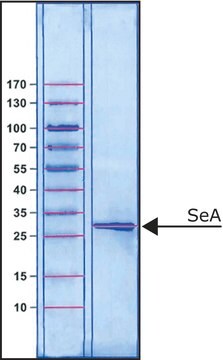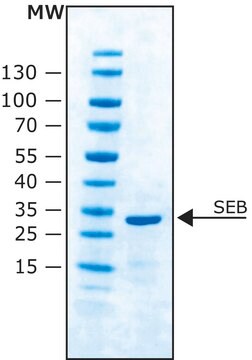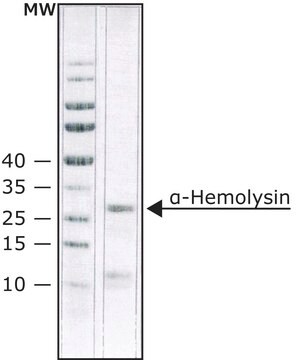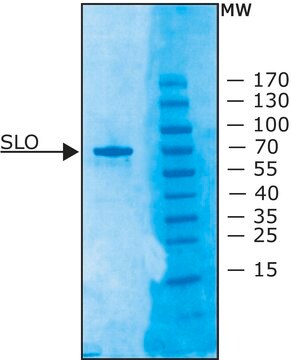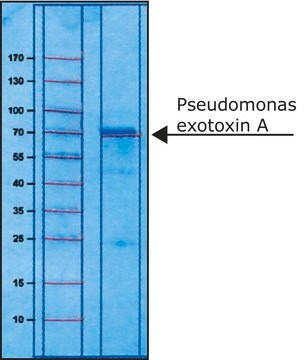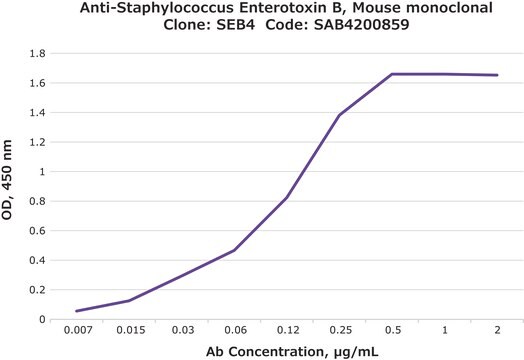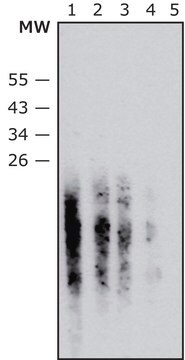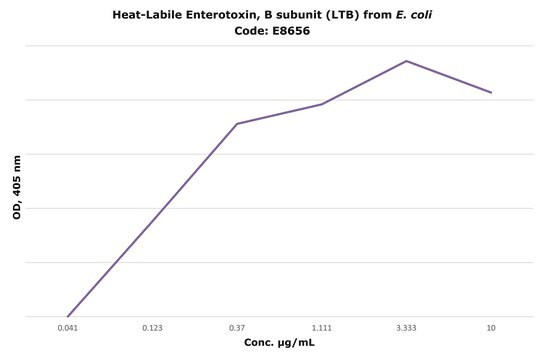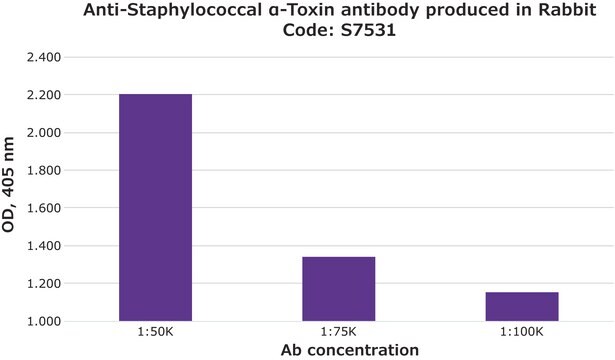Wichtige Dokumente
T5662
Toxic shock syndrome toxin-1 from Staphylococcus aureus
Synonym(e):
Staphylococcal Enterotoxin F, TSST-1
About This Item
Empfohlene Produkte
Zusammensetzung
Contains ~50% protein (Lowry); balance primarily sodium chloride and sodium phosphate buffer.
Qualitätsniveau
Verfügbarkeit
not available in USA
Löslichkeit
H2O: soluble 0.50-0.60 mg/mL, clear to slightly hazy, colorless to faintly yellow
Lagertemp.
−20°C
Anwendung
Biochem./physiol. Wirkung
Angaben zur Herstellung
Signalwort
Danger
H-Sätze
Gefahreneinstufungen
Acute Tox. 2 Dermal - Acute Tox. 2 Inhalation - Acute Tox. 2 Oral
Lagerklassenschlüssel
6.1A - Combustible acute toxic Cat. 1 and 2 / very toxic hazardous materials
WGK
WGK 3
Flammpunkt (°F)
Not applicable
Flammpunkt (°C)
Not applicable
Hier finden Sie alle aktuellen Versionen:
Besitzen Sie dieses Produkt bereits?
In der Dokumentenbibliothek finden Sie die Dokumentation zu den Produkten, die Sie kürzlich erworben haben.
Unser Team von Wissenschaftlern verfügt über Erfahrung in allen Forschungsbereichen einschließlich Life Science, Materialwissenschaften, chemischer Synthese, Chromatographie, Analytik und vielen mehr..
Setzen Sie sich mit dem technischen Dienst in Verbindung.